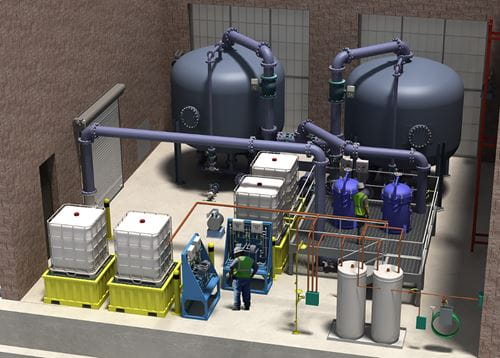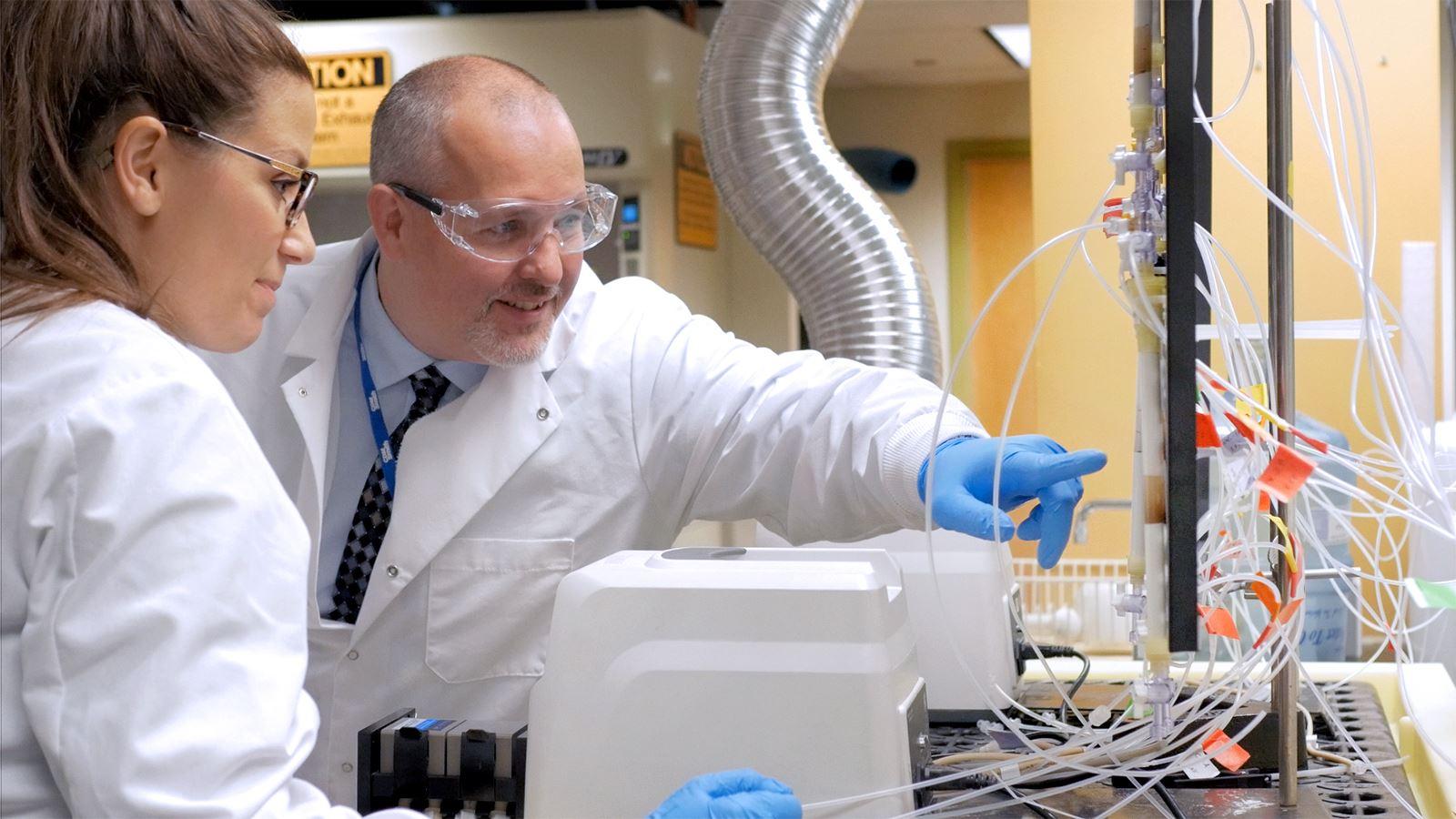Westfield Successfully Treats PFAS with GAC Unit
Westfield is a city located in the Pioneer Valley of western Massachusetts. From its roots as an agricultural community in the 1600s, the area grew to an industrial hub in the 1800s, serving as the manufacturing center of the horse and buggy whip making industry. Today, Westfield is home to over 41,000 people, and is notable for a new reason: it is pioneering a proactive approach to protecting its residents from perfluorinated compounds in drinking water.
Per- and polyfluoroalkyl substances (PFAS), including perfluorooctanoic acid (PFOA) and perfluorooctane sulfonate (PFOS), are industrial chemicals that were used for many years in materials like nonstick cookware and firefighting foam. While these compounds have not been manufactured for some time, they are so stable and durable that they remain in the environment and are considered “emerging contaminants” in drinking water. In 2016, the U.S. Environmental Protection Agency (EPA) issued lifetime health advisories for PFAS, because studies have shown that increased exposure to high concentrations can be harmful.Westfield ceased use of two of its wells where the city found PFOA and PFOS at concentrations exceeding the health advisory level of 70 parts per trillion. While PFAS have not been formally regulated by federal or state authorities, Westfield decided the concern required a solution. The city turned to CDM Smith's water team, who have worked with Westfield on several sewer and water projects over the past 15 years. Experts in environmental remediation and drinking water engineering from CDM Smith helped Westfield bring a new water treatment facility online. The new Owen District Road Water Treatment Plant will ensure safe and reliable water supplies from wells affected by PFOS and PFOA.
The bench-scale testing helped Westfield establish granular activated carbon (GAC) as an effective solution for removing the compounds of concern from the two wells. Bench-scale testing aided in GAC media selection for the facility by comparing alternatives and helped determine compatibility with the groundwater matrix. Based on the results of the bench-scale testing, CDM Smith designed the new Owen District Road water treatment facility, a 4 million gallon per day (mgd) groundwater treatment plant containing the GAC treatment system, a sodium hypochlorite storage and feed system, a phosphate storage and feed system, and an office area with sampling provisions. CDM Smith also provided vigilant construction oversight and operational assistance to the city as the plant went on-line in August 2020.
Many water utilities are concerned about these compounds, but Westfield has taken action and is leading the way.

Bench-scale testing allows us to understand much more about a given situation and how best to treat it.












